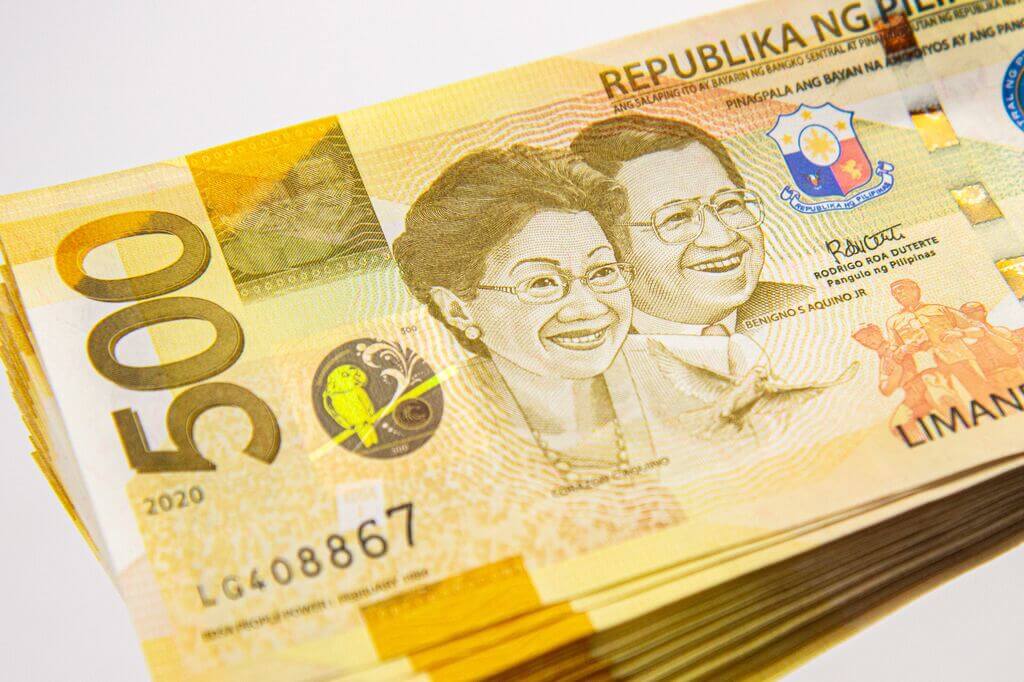What is a Tax Residency Certificate in the Philippines (TRC)?
A Tax Residency Certificate in the Philippines (TRC) is like an ID card that says you’re a resident for tax purposes. A Certificate of Residency in the Philippines is necessary because it can stop you from being taxed twice if you live and work in more than one country.
Getting a Tax Residency Certificate in the Philippines is done by the Bureau of Internal Revenue (BIR). The Tax Residency Certificate shows that you live in the Philippines and pay taxes there. A residency certificate is essential if you are a foreigner working in the Philippines. It tells other countries that you are already paying tax in the Philippines, so they don’t tax you again.
On the other hand, if you are not living in the Philippines but doing business there, you might need a Certificate of Non-Residency. The Certificate of Non-Residency shows that you are not a resident of the Philippines, meaning you only have to pay tax on money you earn in the country, not your worldwide income. This is again to make sure you don’t get taxed twice.
In short, the Tax Residency Certificate in the Philippines and the certificates of residency or non-residency ensure you’re only taxed where you should be.
Can foreigners apply for a Tax Residency Certificate in the Philippines?
Before considering applying for a Tax Residency Certificate in the Philippines (TRC), knowing whether you are eligible is essential. As the Revenue Memorandum Order (RMO) outlines, TRC applicants are essentially residents of the Philippines – either individual citizens or domestic corporations with tax liability on worldwide income. Subject to global tax obligation, these entities are thus rightful candidates to claim tax treaty benefits using a Tax Residency Certificate in the Philippines.
Resident aliens and resident foreign corporations are recognized residents only for domestic tax purposes. A resident alien is a foreign person living in another country and has met specific criteria, allowing them to be taxed in the same manner as a citizen of that country.
Their tax responsibility is only for the Philippines, so they can’t apply for a Tax Residency Certificate in the Philippines. Foreigners can only apply for a Certificate of Non-Residency. The Certificate of Non-Residency shows that they don’t have to pay taxes like a Filipino resident, and it’s official proof of their tax status. The International Tax Affairs Division (ITAD) does not accept TRC applications from these resident foreigners.
The RMO also clarifies the need for taxpayers engaged in business or professional services to be registered with the Bureau of Internal Revenue under a regular Tax Identification Number (TIN). Any taxpayer with a TIN assigned for One-Time Transactions (ONETT) or under Executive Order No. 98 must update their registration.
Which taxes must foreigners pay in the Philippines?
Foreigners living or working in the Philippines need to pay certain taxes. Besides knowing the regulations for a Tax Residency Certificate in the Philippines, it’s also essential to understand the different taxes foreigners might have to pay. Those can be property taxes, while they might also have to pay other taxes.
1. Personal Income Tax
Foreigners in the Philippines are taxed based on their residency status. A foreigner who has lived in the country for at least two years is considered a resident alien in the Philippines. Those who have spent less than two years in the country are non-resident aliens; they can be divided into two classifications:
- Engaged in trade or business in the Philippines
- Not involved in trade or business in the Philippines
A Certificate of Non-Residency in the Philippines proves that an individual or entity is not considered a tax resident of the country. The Bureau of Internal Revenue issues such certificates, thereby exempting them from taxing global income and applying taxes only on income arising within the Philippines’ jurisdiction.
Foreigners spending over 180 days in the Philippines during any calendar year are considered non-resident aliens engaged in trade or business (NRAETBs). Foreigners who spend less than 180 days in the Philippines are called non-resident aliens not engaged in trade or business (NRANETBs). The taxable earnings of NRAETBs and NRANETBs are calculated as their gross income minus personal allowances. Residents of the Philippines are liable for Philippine income tax on both their global income and income sources within the country, such as employment and passive income.
Non-resident citizens and foreigners are liable for income tax on their income only if it is derived from the Philippines. Resident citizens are responsible for the Philippine income tax on global income. Non-resident citizens and foreigners are also subject to Philippine income tax but only on income sources within the Philippines, such as employment and passive income.
| Taxable income | Tax rate |
|---|---|
| Less than ₱ 250,000 ($4,373) | 0% |
| Between ₱ 250,000 ($4,373) and ₱ 400,000 ($6,996) | 15% |
| Between ₱ 400,000 ($6,996) and ₱ 800,000 ($13,992) | 20% |
| Between ₱ 800,000 ($13,992) and ₱ 2 million ($34,980) | 25% |
| Between ₱ 2 million ($34,980) and ₱ 8 million ($139,920) | 30% |
| More than ₱ 8 million ($139,920) | 35% |
2. Value Added Tax (VAT)
The Philippines imposes a 12% Value Added Tax (VAT) on many goods and services. Residents and non-residents must pay this tax. Some exceptions to the VAT include agricultural products, educational services, medical services, and others.
3. Real Property Tax (RPT)
If you own assets like buildings or lands in the Philippines, you must pay an annual Real Property Tax (RPT). This tax remains a crucial financial commitment even if you don’t possess land ownership.
RPT is determined based on the evaluated value of the property. According to the Local Government Code of 1991, for properties positioned in the provinces, the RPT rate is fixed at 1% of the property’s assessed value, while for those situated in cities or municipalities within Metro Manila, the rate is 2%.
Also, property owners must remit this tax yearly. Non-compliance or delayed payments can incur penalties and may accrue additional charges. Property owners can settle the tax in full at the beginning of the year, specifically in January, or make payments in four equal quarterly installments due at the end of March, June, September, and December. You can use our Real Property Tax calculator to compute the RPT tax you must pay in the Philippines.
4. Capital Gains Tax (CGT)
The profits derived from the sale, exchange, or disposition of lands and buildings that are not actively utilized in a corporation’s business and are classified as capital assets. This income is subject to Capital Gains Tax, which has a final tax rate of 6%. This tax is calculated based on the gross selling price or the fair market value, whichever is higher.
5. Documentary Stamp Tax (DST)
The Documentary Stamp Tax (DST) is an excise tax applied to documents, instruments, loan agreements, and papers that provide proof of the acceptance, assignment, sale, or transfer of obligations, rights, or property related to it. The amount of tax could be fixed or calculated based on the face value of the document or instrument involved. The DST rate is set at ₱ 15 ($0.26) for every ₱ 1,000 ($17.49). A DST tax rate of 1.5% is imposed in real estate transactions. This is calculated based on the agreed-upon payment for the said property or its fair market value, whichever has a higher value.
Expert assistance in obtaining a Tax Residency Certificate in the Philippines
“Navigating the process of obtaining a Tax Residency Certificate in the Philippines can be challenging, but our experienced team is here to guide you every step of the way. From understanding eligibility requirements and gathering necessary documentation to submitting your application and ensuring compliance with local regulations, we provide comprehensive support tailored to your needs. Whether you’re an individual or a business, our personalized assistance makes the process smooth and stress-free. You can also email us at [email protected] for detailed inquiries and specialized guidance. Contact us today to secure your Tax Residency Certificate with confidence!”
Frequently Asked Questions (FAQs)
What is the Philippines’ certificate of tax residency?
The Tax Residency Certificate in the Philippines is a document issued by the tax authorities, specifically, the International Tax Affairs Division (ITAD) of the Bureau of Internal Revenue (BIR), signifying that an individual or entity is a resident for tax purposes. A Tax Residency Certificate in the Philippines is provided to taxpayers classified as residents for tax treaty purposes, particularly those with foreign-source income intending to avail of treaty benefits under effective tax treaties.
How do I get a Tax Residency Certificate in the Philippines?
To secure a Tax Residency Certificate in the Philippines (TRC), complete BIR Form No. 0902. Additionally, you must provide a certified true copy of your proof of income, a photocopy of your passport booklet or a residency certificate if you’ve never left the Philippines, and your annual income tax return for the previous year. The Tax Residency Certificate in the Philippines, issued by the International Tax Affairs Division of the Bureau of Internal Revenue, certifies your tax resident status in the country.
What is the 183-day rule for tax residency in the Philippines?
The 183-day rule for tax residency in the Philippines determines if an individual falls into the non-resident category. If an individual stays in the country for less than 180 or 183 days a year, they may be considered a non-resident alien not engaged in trade or business. This implies that to be deemed a tax resident. An individual must be present in the country for more than 183 days during the year.








2 Responses
I have A Filipino 67yrs old , with address in Philippines but earning income for 2 months now here in India.
I dont pay taxes in Philippines since I retired in 2016.
Do I have to get Tax Residency Certificate form IDAP/BIR.
Thank you
Joel Gonzales
As a Filipino retiree earning income in India, it may be beneficial to obtain a Tax Residency Certificate (TRC) from the BIR in the Philippines if you need to establish tax residency for potential tax treaties or compliance requirements. Consulting with a tax advisor would help clarify your specific obligations.